Our Vision — The Mycelium

A deeply interconnected, inclusive, responsive and powerful ecosystem of stakeholders who work in concert to achieve ambitious
climate mitigation, resilience and adaptation at the subnational and lower levels of governance.
Mycelia can convert trees in a forest into a hyperconnected, resilient super-organism far greater than the sum of its parts. Drawing inspiration from the mycelium, we believe that meaningful climate action requires the kind of dialogue and enabling ecosystem that creates conditions for consensus and impact. That trust between partners and within networks is a vital substrate. For our work of addressing climate change, nothing inspires us more than nature itself.

Our Approach
When you work with Asar, you’re accessing an entire ecosystem of climate action, rooted in local wisdom and connected through collaborative networks.
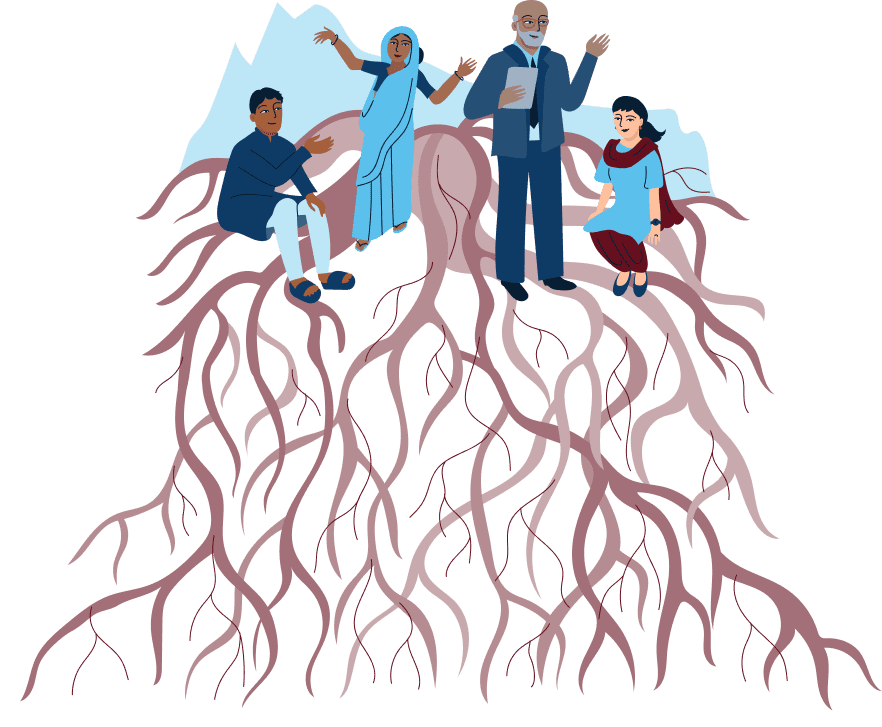
Listening to the needs and building on the knowledge and experience of local communities
Understanding regional governance systems and supporting convergence in implementation
Building lasting stakeholder networks that amplify and create exponential change

Connecting policy makers with practitioners in constructive solution sensing and building
Enabling knowledge flow across geographical regions and ensuring intersectional engagement
Key Pillars

Local wisdom
Emphasizing the power of local knowledge and governance

Bridge Building & Cultural Resonance
Emphasizing the power of local knowledge and governance

Collaborative Impact
Working through flexible and collaborative partnerships

Mycelial Impact
Like mycelial networks in nature, strengthening ecosystems invisibly, connecting and nourishing from beneath while enabling others to thrive
Building Mycelial Networks
We at Asar see ourselves as building connections between a swarm of smaller organisations, experts, local governments, and industry leaders to find diverse and yet ambitious solutions to build a climate resilient, socially just and ecologically sustainable future. We fulfil this purpose by deploying strategies to connect people and build relationships.
Conference of Panchayats

Grassroots Governance in Action
One example is how meetings with village panchayats in 2021 sparked the idea of the Conference of Panchayats (CoP), the first of which was held in Jharkhand in March 2022. Local stakeholders, including mukhiyas, pramukhs, and NGOs, attended the two-day event to discuss climate change mitigation and just transition. Since then, we have continued to hold similar workshops across states, with the CoPs becoming a ground for local representatives and stakeholders to come together to build a supporting ecosystem enabling cross-learning. Such dialogues are crucial alongside the global COP, where countries’ representatives discuss climate action at the macro level.
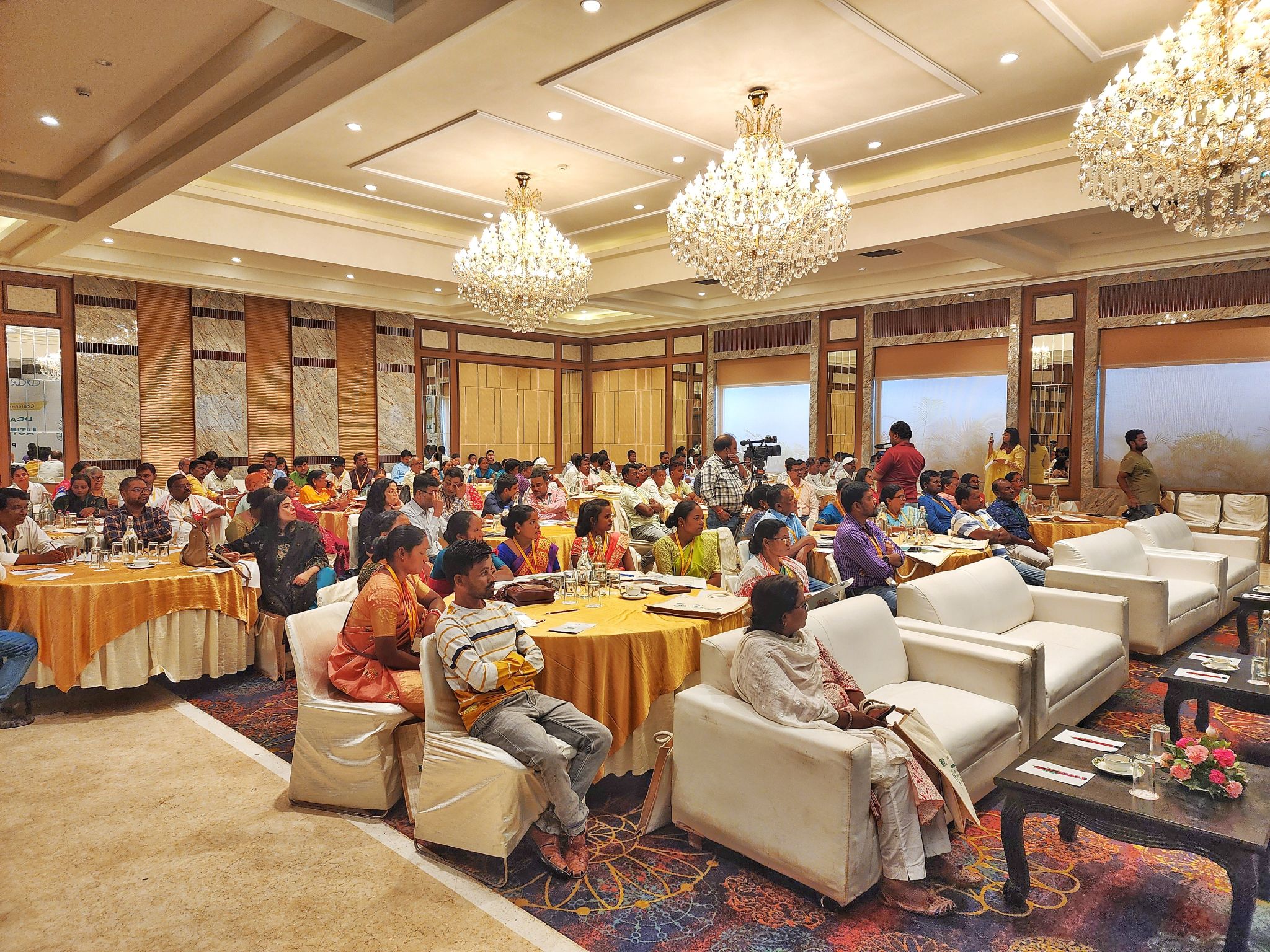
The Clean Air Collective

Unbranded, United for Clean Air
Another example is the Clean Air Collective, an unbranded network with an aim to align on strategy, complement each other’s work, reduce duplication of efforts, and to ensure deeper impact through collaborative work in the air quality space. The Collective currently comprises over 200 members –– including a diverse set of people and organisations with work spanning across 15 states and 50 cities.

Climate Educators Network (CEN)

Educating for a Resilient Future
We are the strategic partner of the Climate Educators Network (CEN), a diverse and passionate collective united by a common purpose: to create holistic, inclusive, and climate-resilient societies through education.

Decarbonisation India Alliance (DIA)

Enabling Low-Carbon Transitions
As the enabling partner of Decarbonisation India Alliance (DIA), we are working across states including West Bengal, Maharashtra, Kerala, Karnataka, Tamil Nadu, Punjab, to accelerate the transition towards a low-carbon and sustainable future for India through accelerating the transition of MSMEs.
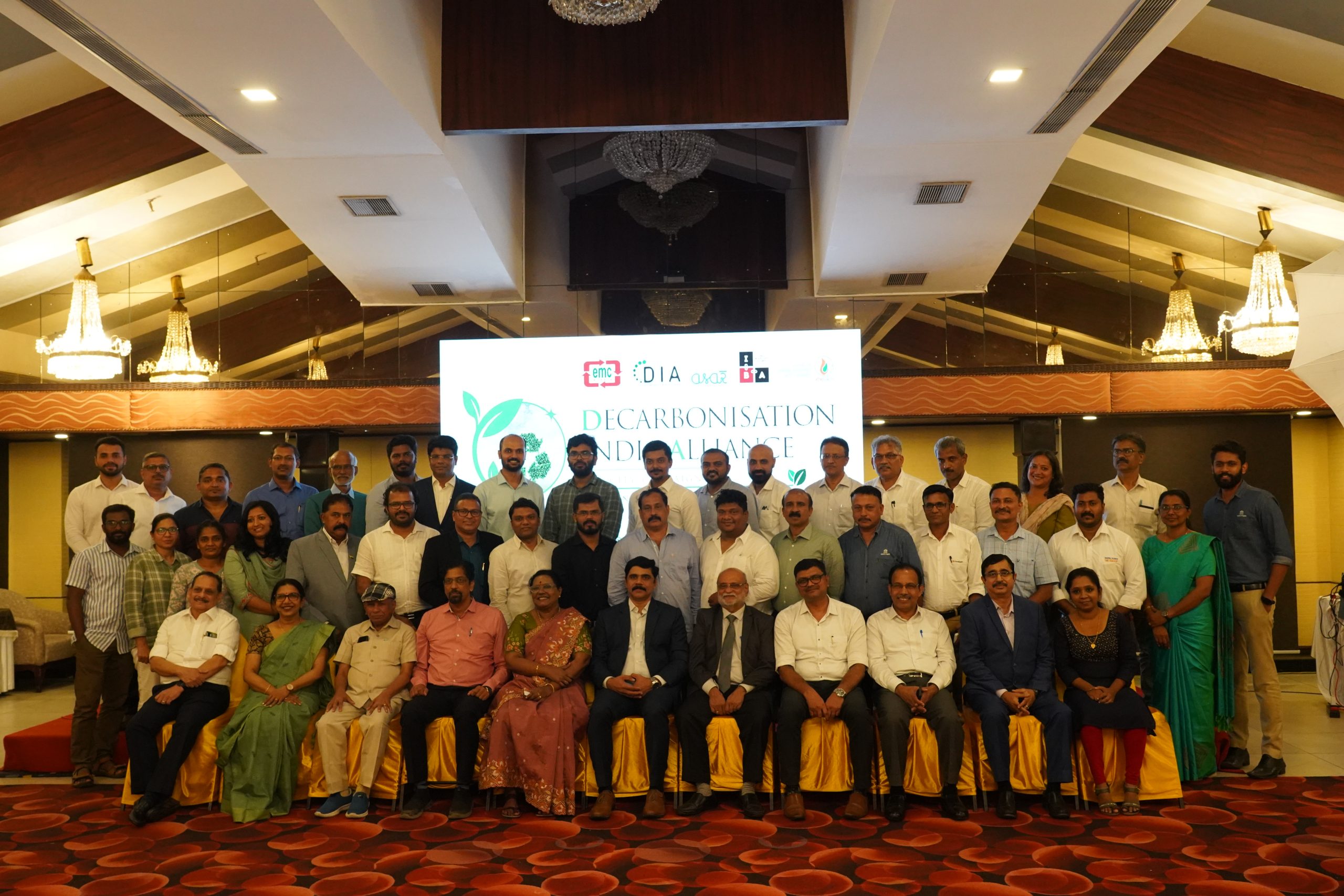
Regional Communications Hubs

Shaping Regional Climate Narratives
Our Regional Communications Hubs aim to reshape climate discourse at regional levels, rather than passively receiving global or national narratives. The hubs serve as infrastructure to promote climate literacy and to create impactful narratives on climate resilience from the ground up. We currently operate in Bengali, Hindi, Kannada, Malayalam, Marathi, Punjabi, and Tamil, and English responding to state-specific dynamics, and helping create new narratives that can echo across regions and at the national level.
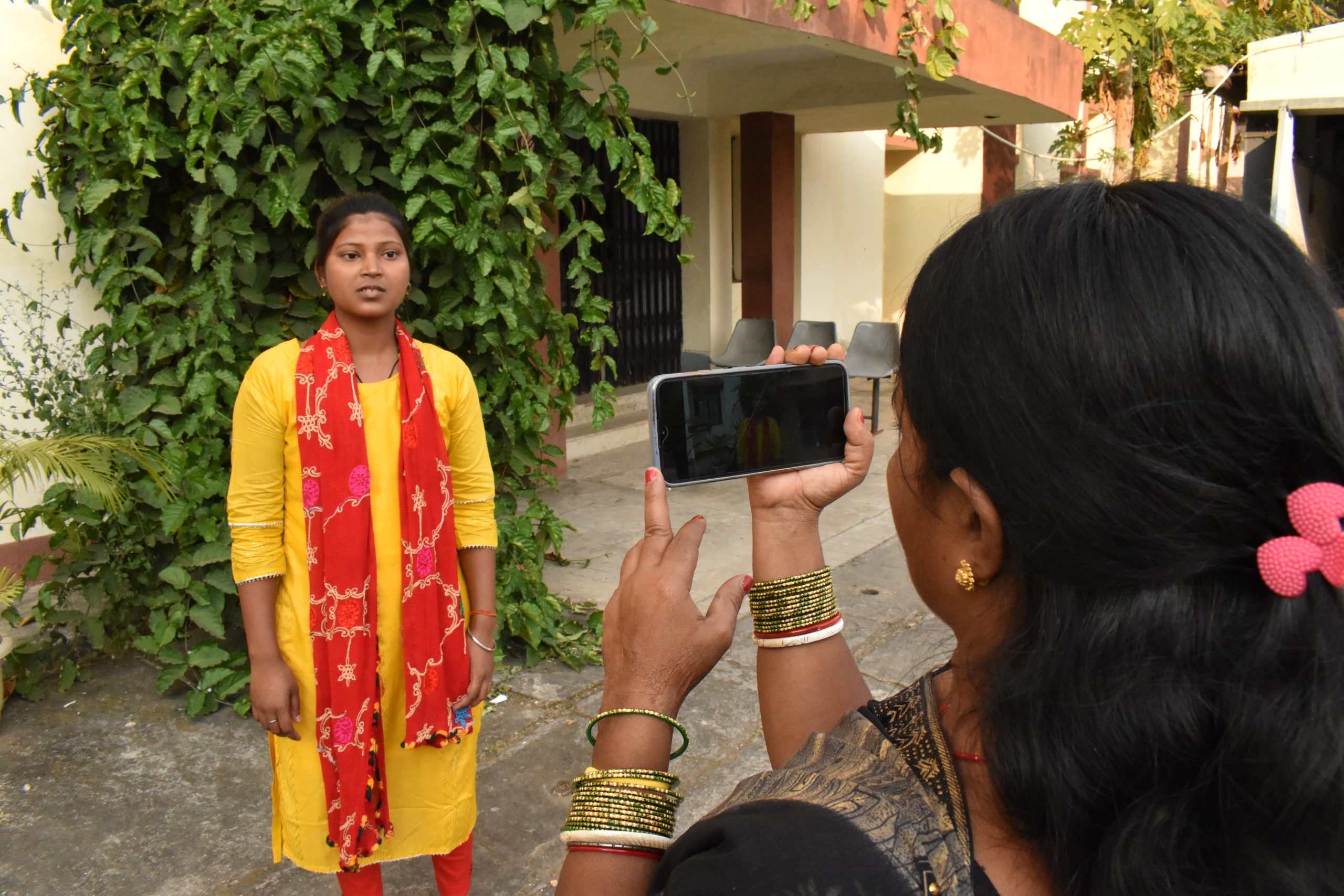
On-Ground Impact

Building Resilience Across India
Whether conducting district-level workshops on climate resilience in Kerala, training youth climate leaders in Tamil Nadu, protecting ecological commons in Maharashtra and Odisha, helping farmers adopt solar technology in Bihar, promoting sustainable mobility in Karnataka, or tackling systemic issues like air pollution in Delhi and Punjab, we recognise ongoing efforts, identify gaps, and bridge them.
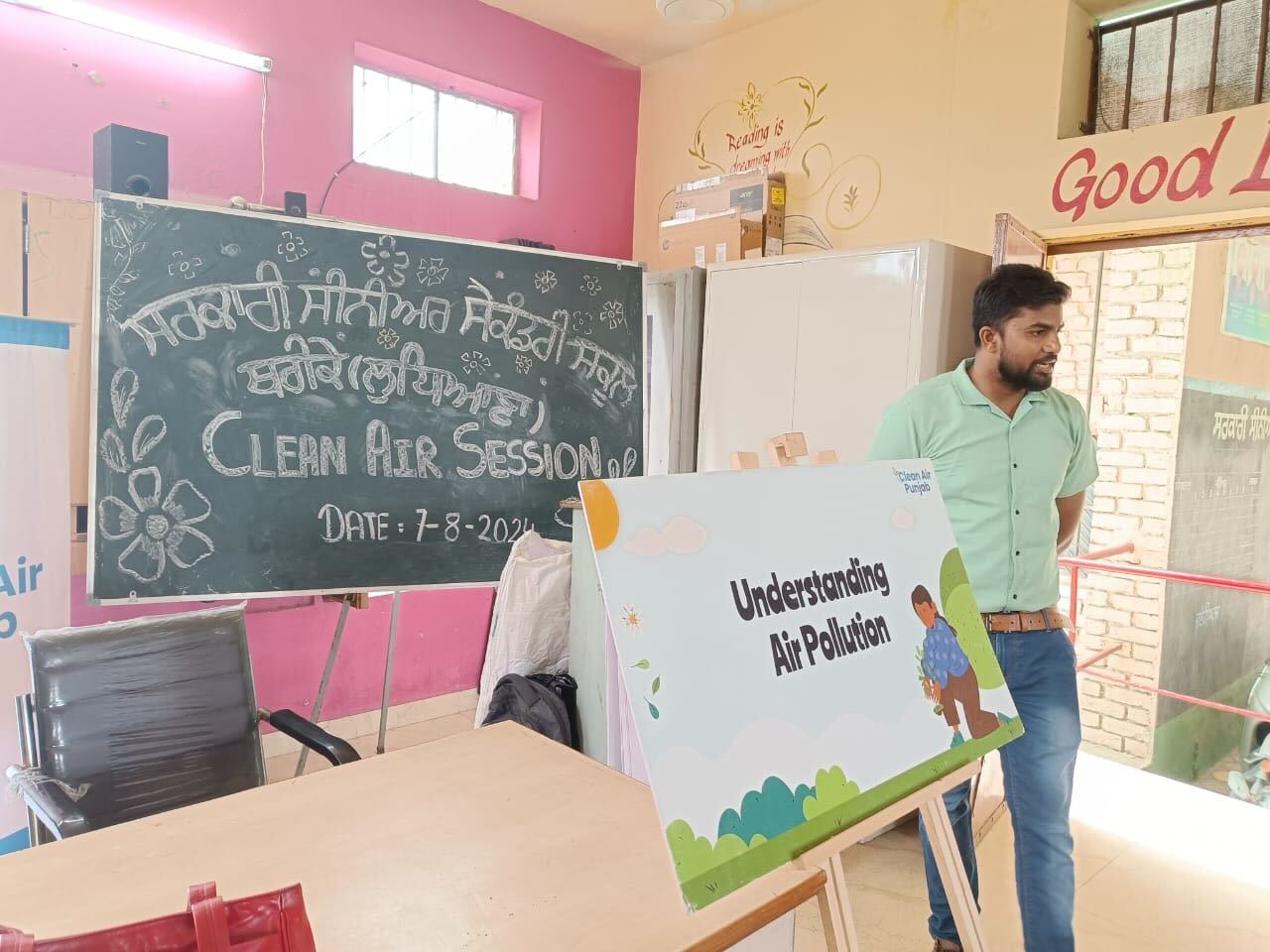
Community for Gender and Climate Justice

Building women climate leaders
We support a diverse group of individuals and organisations that have come together to build a community that works on gender and climate change at national and sub-national level. A broad vision of the community is to build the leadership of women (especially coming from marginalised and indigenous backgrounds) to collectively influence India’s climate action and policy.
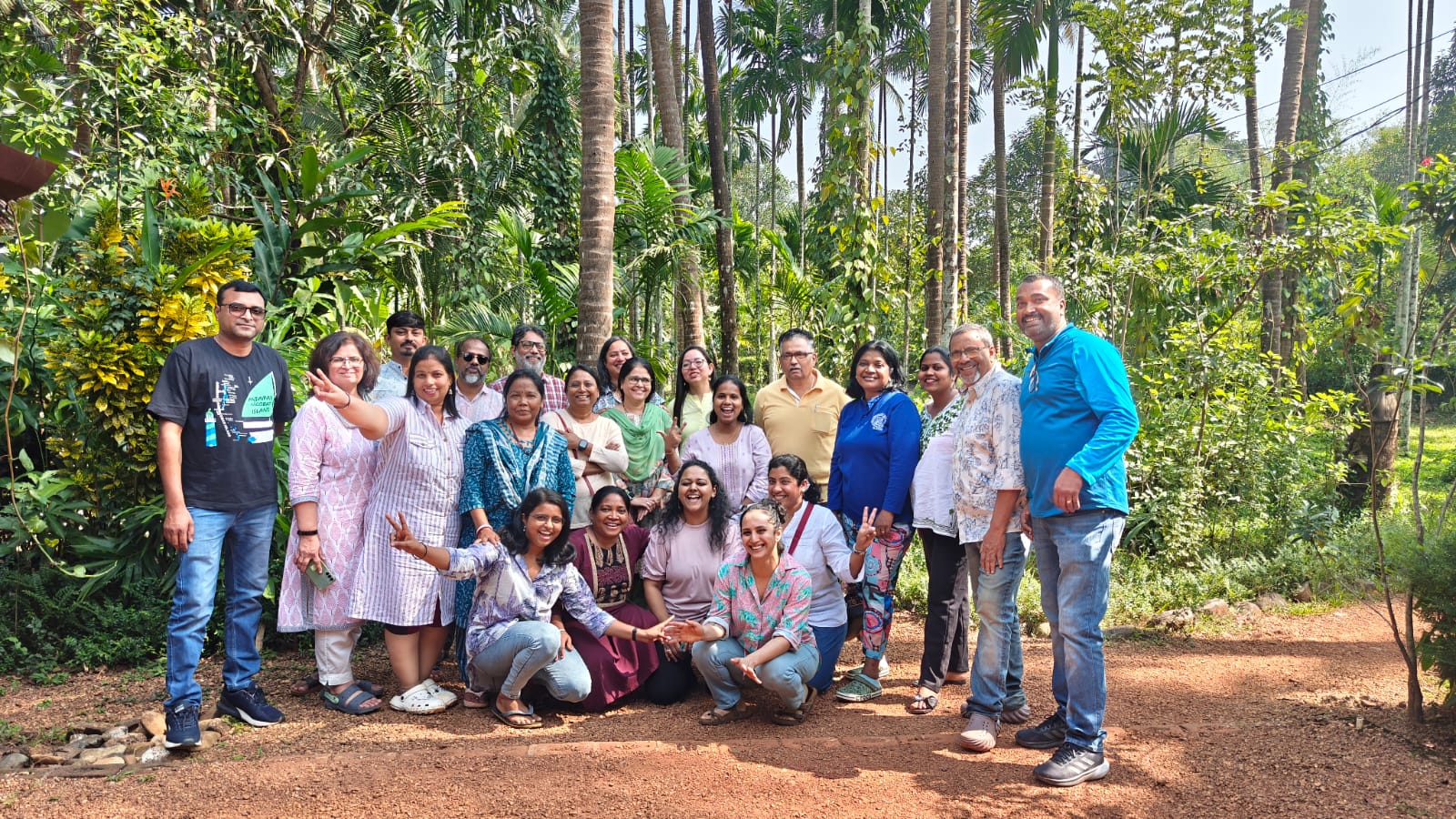
Alliance for Climate Resilient Agriculture (ACRA)

Collectively advancing agroecological transitions
Asar and the Citizen Consumer and Civic Action Group (CAG), in partnership, are initiating the Alliance for Climate Resilient Agriculture (ACRA)—a decentralized, multi-state network in response to the climate crisis in India’s food system. Working across Kerala, Tamil Nadu, Maharashtra, and Bihar, ACRA brings together farmers, women’s collectives, FPOs, civil society organisations, research institutions, and local governments to support the transition towards agroecology and climate-resilient agriculture by enabling cross-state learning, collaboration, and the sharing of locally grounded practices.
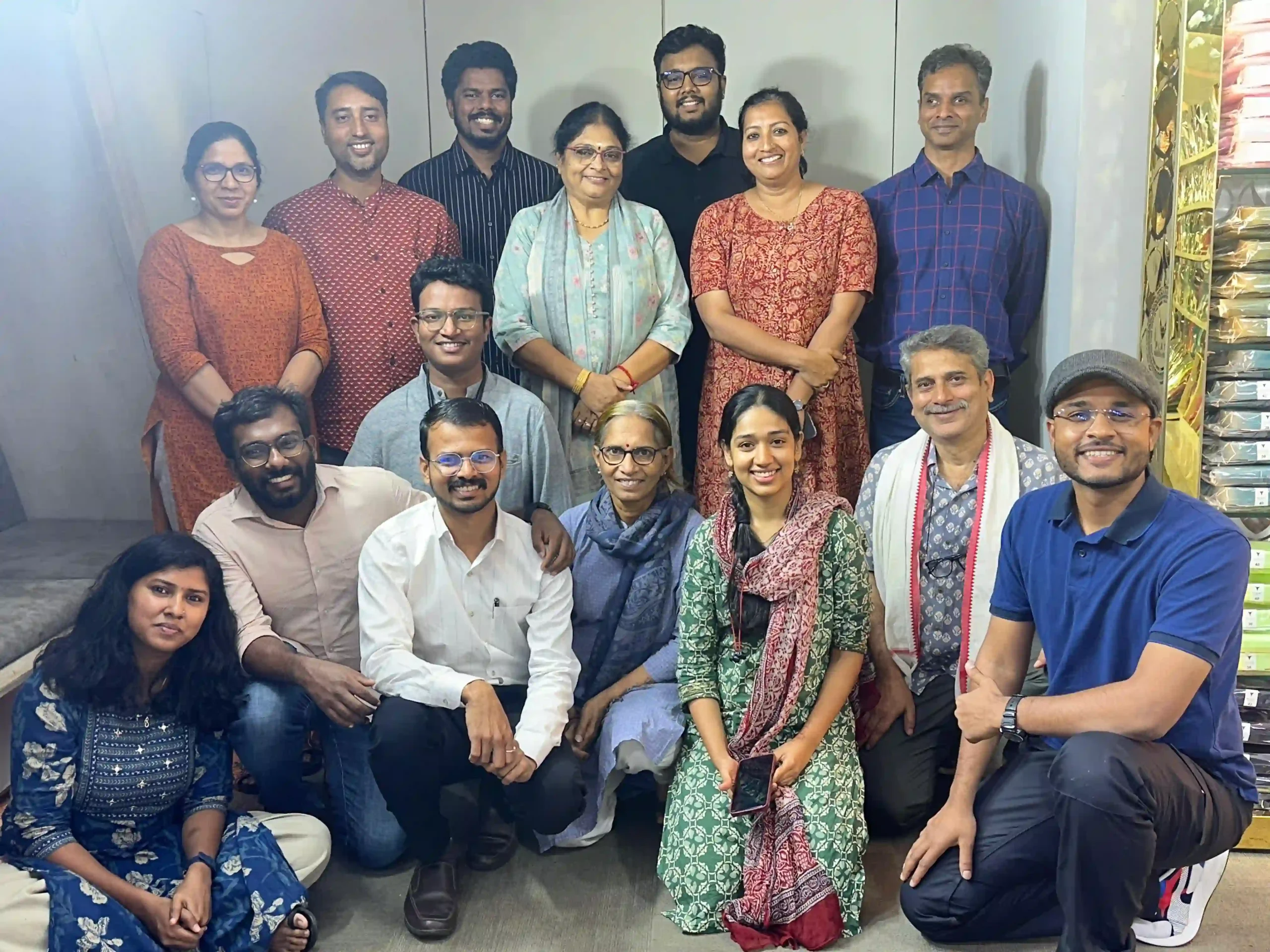
Our Journey So Far
We believe that collective impact can only be achieved through dialogue, alignment, and deep collaboration. Since 2016, Asar has been working on bringing stakeholders together on a common platform to develop strategies and work together to implement programs that deliver impactful change. Often, policy conversations about climate action take place in Delhi and in conferences of influential think tanks, companies and financial institutions. However, meaningful action is practically impossible without a granular understanding of realities at the sub-national and lower levels of governance, more so in India. In the absence of dialogue and building shared strategies and plans, it will be hard to ensure we meet our climate goals.

In India, with its diverse socio-economic and cultural construct, our primary challenge is in finding solutions that meet the aspirations of the world’s largest population, facing severe climate vulnerability. Despite having good policies and a net-zero target, effective implementation and planning are still hurdles. To create real systemic impact, we need policymakers, industry, and communities to work together, aligning on actions that help us and the ecosystems that sustain us to thrive.

Meet the People Behind the Work
Our work is made possible by people who bring curiosity, care, and commitment to every conversation and community.
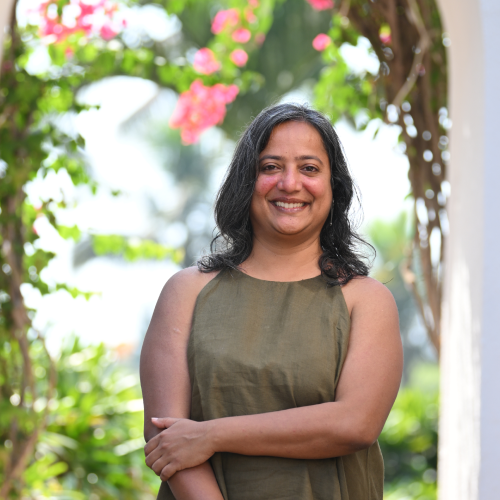
Vinuta Gopal
Chief Executive Officer
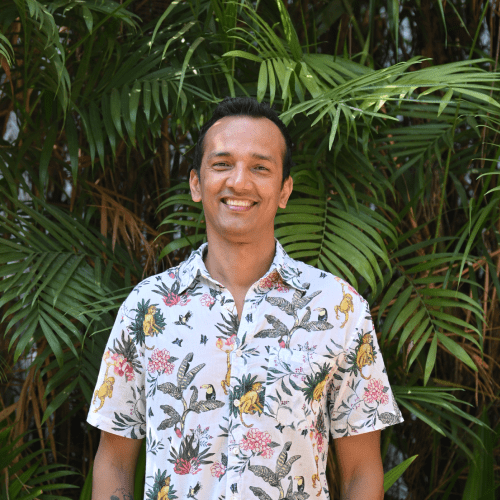
Brikesh Singh
Chief of Communications & Engagement
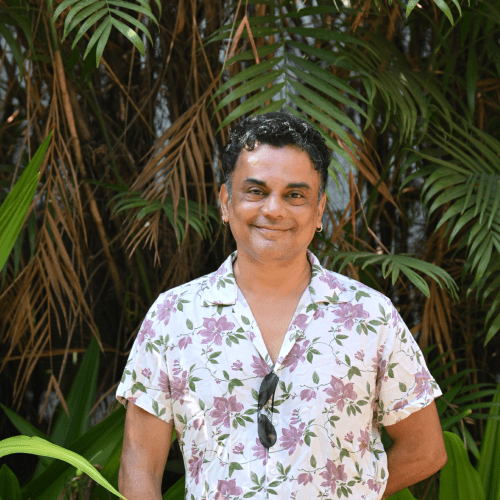
Sanjiv Gopal
Chief of Planning & Strategy, Director, Sustainable Mobility
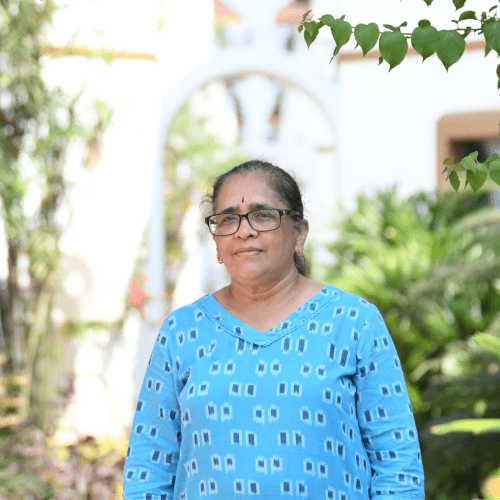
Meera Srihari
Director, Finance and Admin



